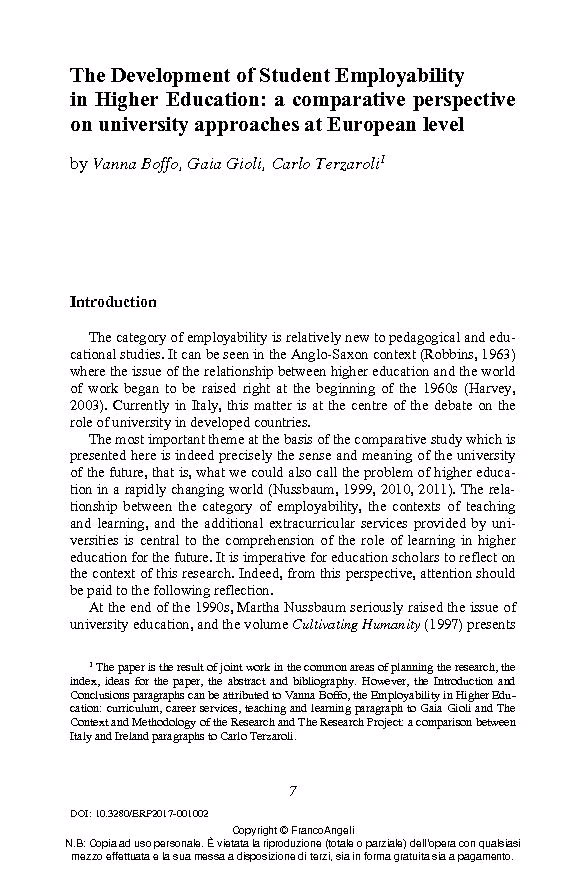The Development of Student Employability in Higher Education : a comparative perspective on university approaches at European level
7-29 p.
In recent years the problem of graduates' transitions from higher education to the labour market has become increasingly relevant for the field of adult education. The transition to work represents not just the beginning of a professional career, but involves the entrance into adulthood as well (Eurofound, 2014). Higher education systems have started to discuss this topic, focusing on the most effective educational pathways and tools to support transitions to work. The category of employability (Yorke, 2006; Harvey, 2003; Sumanasiri, Yajid & Khatibi, 2015) has been developed in order to deal with this challenge, with its aim to support the development of capabilities (Stephenson & Yorke, 1998; Nussbaum, 2011) for careers, and for the whole of life, in order to deal with the multiple transformations that may also occur.
In this framework, universities have implemented different approaches to supporting students' employability as part of curricular, cocurricular and extra-curricular activities (Yorke & Knight, 2006; AHECS, 2014). The paper intends to analyse the state of the art of a comparative research project (Bereday, 1972; Phillips & Schweisfurth, 2014) about the strategies used by universities in Italy and Ireland to develop young adults' employability skills and capabilities. The results of the project could provide an overview of a broad spectrum of solutions for the development of students' employability in higher education. [Publisher's Text].
Is part of
Educational reflective practices : 1, 2017-
Articles from the same issue (available individually)
-
Information
ISSN: 2279-9605



